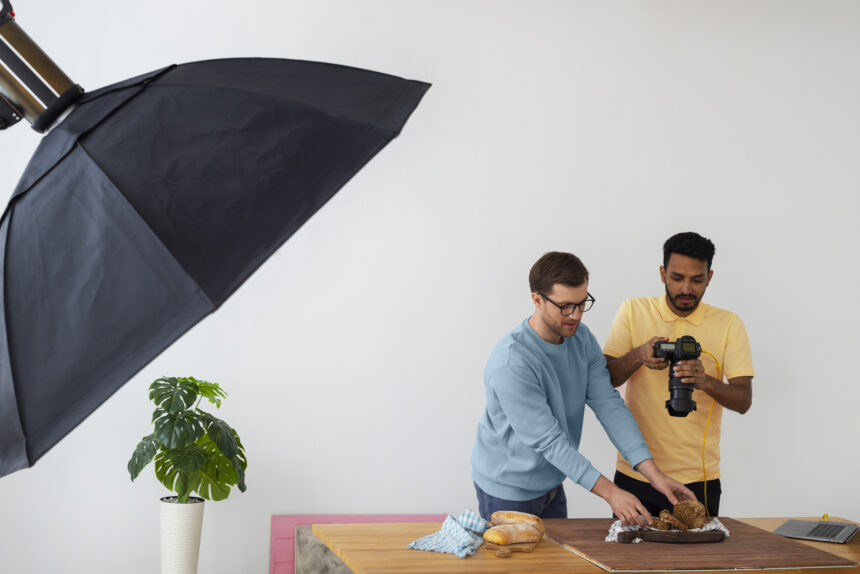If you run a home-based professional photography business, it’s essential to have the right insurance coverage to protect your equipment, liability, and financial well-being. While working from home offers flexibility and convenience, it also comes with unique risks and considerations. Home insurance policies typically have limitations when it comes to business-related activities, which is why it’s crucial to understand the specific considerations for your photography business. Here are some key home insurance considerations for home-based professional photography:
- Business Property Coverage: Your home insurance policy may provide some coverage for your photography equipment, but it’s important to review the limits and exclusions. Photography equipment can be expensive, including cameras, lenses, lighting equipment, tripods, and computers. Ensure that your policy covers the full value of your equipment, whether it’s at your home or when you’re working on location. Consider adding additional coverage or a separate business property policy to adequately protect your photography equipment from theft, damage, or loss.
- Liability Coverage: Liability coverage is crucial for any business, including professional photography. When working with clients or conducting photo shoots, there is always a risk of accidents or property damage. Liability insurance protects you in case someone is injured during a shoot or if you inadvertently damage someone else’s property. It covers legal expenses, medical costs, and potential settlements or judgments. Make sure your home insurance policy includes liability coverage, or consider adding a separate business liability policy to ensure adequate protection.
- Home Studio Considerations: If you have a dedicated studio space within your home for your photography business, it’s important to inform your insurance provider. Standard home insurance policies may have limitations on coverage for business-related structures or modifications. By disclosing the presence of a home studio, you can explore options for extending coverage to include your studio, including liability protection for clients who visit your premises.
- Professional Indemnity Insurance: Professional indemnity insurance, also known as errors and omissions insurance, is essential for photographers. It protects you from claims related to professional negligence, errors, or omissions in your work. For example, if you accidentally delete or lose important client photos, professional indemnity insurance can help cover the costs associated with retaking or recreating the images. This coverage provides peace of mind and safeguards your business reputation.
- Cyber Liability Coverage: As a photographer, you may store client data, including images, personal information, and payment details. Protecting this data from cyber threats is critical. Cyber liability coverage helps safeguard against data breaches, hacking, and other cyber risks. It can cover the costs of notifying clients, recovering compromised data, legal expenses, and any liability arising from the breach. Consider adding cyber liability coverage to your insurance policy or explore standalone cyber insurance options to protect your clients’ sensitive information.
- Business Interruption Coverage: If your photography business is disrupted due to property damage, such as a fire or water leak, it can result in a significant financial loss. Business interruption coverage can help cover lost income and ongoing expenses during the period when you are unable to operate your business. It ensures that you can continue to meet financial obligations and resume operations once the damages are repaired.
- Additional Coverage for Off-Site Shoots: Many professional photographers work on location or travel for photo shoots. In such cases, consider additional coverage options for equipment protection and liability coverage outside your home. This can include coverage for equipment while in transit, coverage for damage or loss at off-site locations, and protection for any rented equipment.
- Review Policy Exclusions and Limitations: It’s essential to carefully review your home insurance policy to understand any exclusions or limitations related to your photography business. Some policies may have restrictions on coverage for home-based businesses or specific types of activities. Discuss your business operations with your insurance provider to ensure that you have the appropriate coverage and consider additional endorsements or policies to fill any gaps.
In conclusion, as a home-based professional photographer, it’s crucial to consider the unique insurance needs of your business. Assess your equipment value, review your liability coverage, consider professional indemnity and cyber liability insurance, disclose your home studio, and explore options for business interruption coverage. Understanding your insurance options and working with an experienced insurance agent can help you tailor a comprehensive insurance plan that protects your photography business and provides you with peace of mind.










